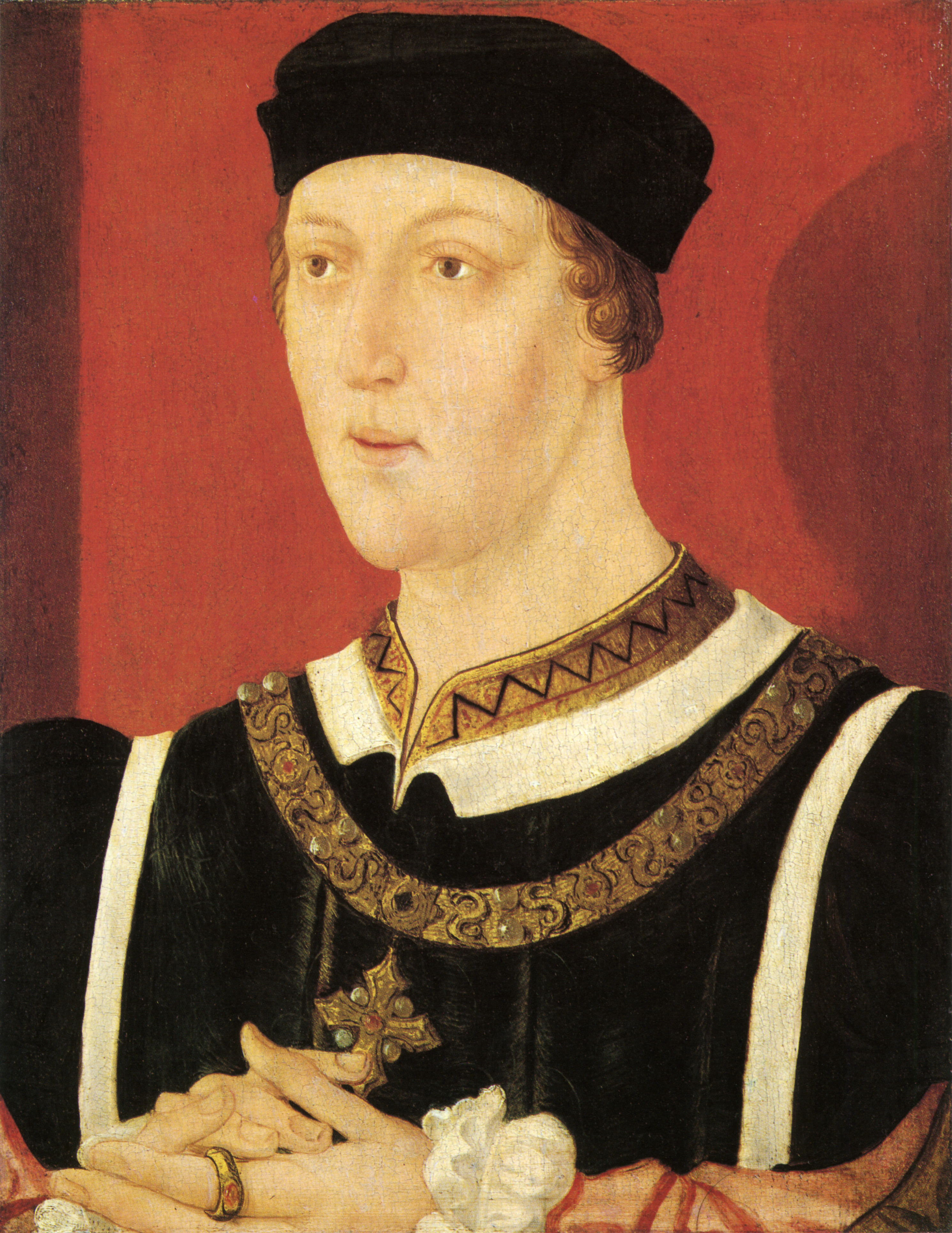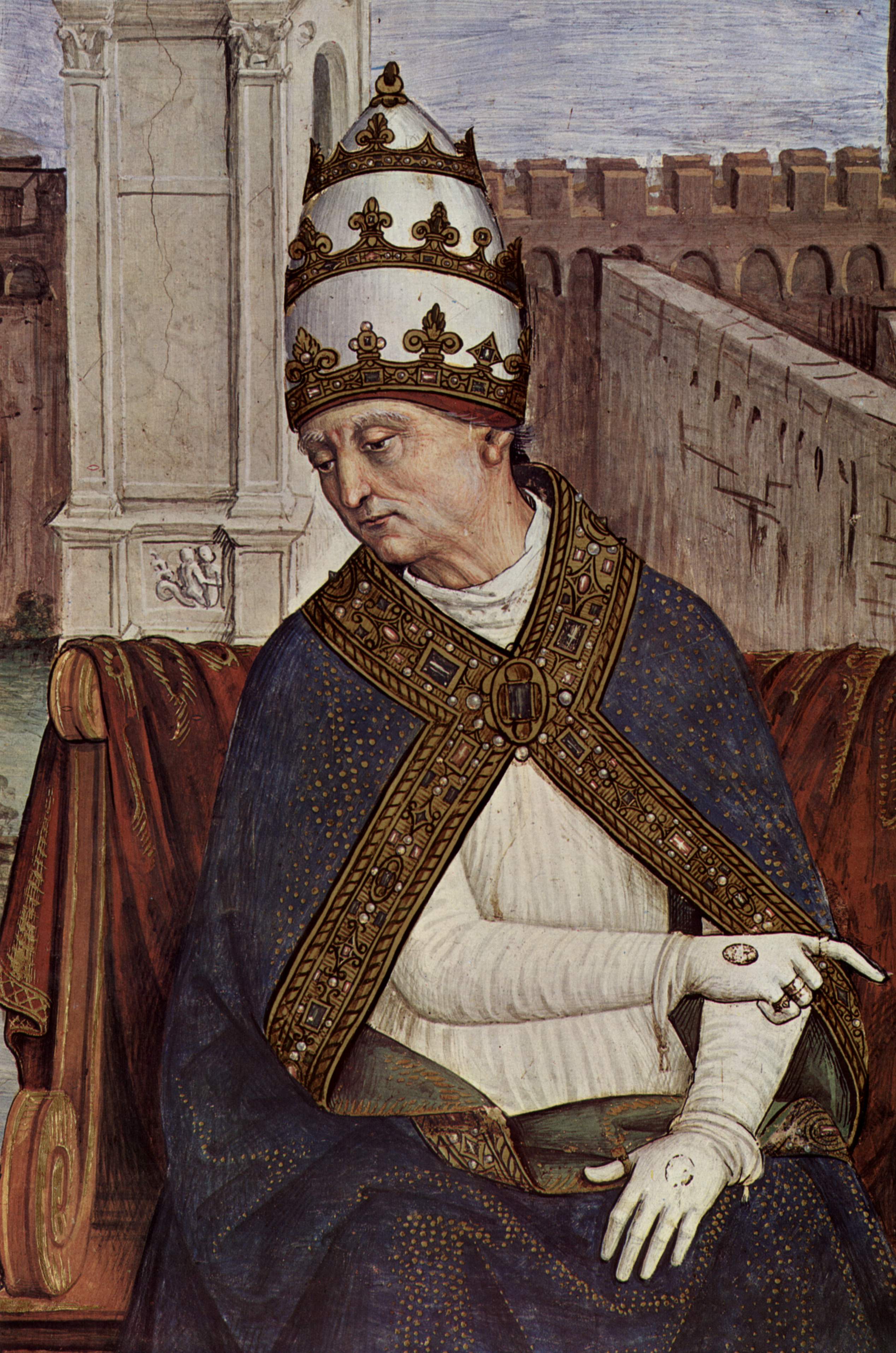|
1458
Year 1458 ( MCDLVIII) was a common year starting on Sunday (link will display the full calendar) of the Julian calendar, the 1458th year of the Common Era (CE) and Anno Domini (AD) designations, the 458th year of the 2nd millennium, the 58th year of the 15th century, and the 9th year of the 1450s decade. Events January–December * January 24 – Matthias Corvinus becomes king of Hungary, at age 14. * March 25 – The Loveday is staged in London, by which Henry VI of England attempts to unite the warring factions who have triggered the War of the Roses. * August 19 – Pope Pius II succeeds Pope Callixtus III, as the 210th pope. * October 24 – King Afonso V of Portugal conquers Ksar es-Seghir, in North Africa. Date unknown * Magdalen College, Oxford, is founded. * George of Poděbrady becomes king of Bohemia. * The Ottoman authorities issue a decree to protect the Acropolis, after they conquer Athens. * The Jewish community is expelled from Erfu ... [...More Info...] [...Related Items...] OR: [Wikipedia] [Google] [Baidu] |
Matthias Corvinus
Matthias Corvinus, also called Matthias I ( hu, Hunyadi Mátyás, ro, Matia/Matei Corvin, hr, Matija/Matijaš Korvin, sk, Matej Korvín, cz, Matyáš Korvín; ), was King of Hungary and Croatia from 1458 to 1490. After conducting several military campaigns, he was elected King of Bohemia in 1469 and adopted the title Duke of Austria in 1487. He was the son of John Hunyadi, Regent of Hungary, who died in 1456. In 1457, Matthias was imprisoned along with his older brother, Ladislaus Hunyadi, on the orders of King Ladislaus the Posthumous. Ladislaus Hunyadi was executed, causing a rebellion that forced King Ladislaus to flee Hungary. After the King died unexpectedly, Matthias's uncle Michael Szilágyi persuaded the Estates to unanimously proclaim the 14-year-old Matthias as king on 24 January 1458. He began his rule under his uncle's guardianship, but he took effective control of government within two weeks. As king, Matthias waged wars against the Czech mercenaries who domina ... [...More Info...] [...Related Items...] OR: [Wikipedia] [Google] [Baidu] |
Loveday, 1458
The Loveday of 1458 (also known as the Annunciation Loveday) was a ritualistic reconciliation between warring factions of the English nobility that took place at St Paul's Cathedral on 25 March 1458. Following the outbreak of the Wars of the Roses in 1455, it was the culmination of lengthy negotiations initiated by King Henry VI to resolve the lords' rivalries. English politics had become increasingly factional during his reign, and was exacerbated in 1453 when he became catatonic. This effectively left the government leaderless, and eventually the King's cousin, and at the time heir to the throne, Richard, Duke of York, was appointed Protector during the King's illness. Alongside York were his allies from the politically and militarily powerful Neville family, led by Richard, Earl of Salisbury, and his eldest son, Richard, Earl of Warwick. When the King returned to health a year later, the protectorship ended but partisanship within the government did not. Supporters of ... [...More Info...] [...Related Items...] OR: [Wikipedia] [Google] [Baidu] |
Pope Pius II
Pope Pius II ( la, Pius PP. II, it, Pio II), born Enea Silvio Bartolomeo Piccolomini ( la, Aeneas Silvius Bartholomeus, links=no; 18 October 1405 – 14 August 1464), was head of the Catholic Church and ruler of the Papal States from 19 August 1458 to his death in August 1464. He was born at Corsignano in the Sienese territory of a noble but impoverished family. He was a Renaissance humanist, famous as an author in Latin before he became pope. His longest and most enduring work is the story of his life, the ''Commentaries'', which is the only revealed autobiography ever to have been written by a reigning pope. This was only published in 1584. Early life Aeneas was born to Silvio, a soldier and member of the House of Piccolomini, and Vittoria Forteguerri, who had 18 children including several twins, though most died at a young age. He worked with his father in the fields for some years and at age 18 left to study at the universities of Siena and Florence. He settled in the f ... [...More Info...] [...Related Items...] OR: [Wikipedia] [Google] [Baidu] |
Pope Callixtus III
Pope Callixtus III ( it, Callisto III, va, Calixt III, es, Calixto III; 31 December 1378 – 6 August 1458), born Alfonso de Borgia ( va, Alfons de Borja), was head of the Catholic Church and ruler of the Papal States from 8 April 1455 to his death in August 1458. Borgia spent his early career as a professor of law at the University of Lleida; he later served as a diplomat for the kings of Aragon. He became a tutor for King Alfonso V's illegitimate son Ferdinand. After arranging a reconciliation between Alfonso and Pope Martin V, Borgia was made Bishop of Valencia. In 1444, Pope Eugene IV named him a cardinal, and Borgia became a member of the Roman Curia. During the siege of Belgrade (1456), Callixtus initiated the custom that bells be rung at midday to remind the faithful to pray for the crusaders. The tradition of the Angelus noon bell still exists in most Catholic Churches to this day. He was also responsible for the retrial of Joan of Arc that saw her vindicated. He appo ... [...More Info...] [...Related Items...] OR: [Wikipedia] [Google] [Baidu] |
George Of Poděbrady
George of Kunštát and Poděbrady (23 April 1420 – 22 March 1471), also known as Poděbrad or Podiebrad ( cs, Jiří z Poděbrad; german: Georg von Podiebrad), was the sixteenth King of Bohemia, who ruled in 1458–1471. He was a leader of the Hussites, however, moderate and tolerant toward the Catholic faith. His rule was marked by great efforts to preserve peace and tolerance between the Hussites and Catholics in the religiously divided Crown of Bohemia – hence his contemporary nicknames: "King of two peoples" and "Friend of peace". During the 19th century, in period of the so-called Czech National Revival, he began to be praised (even somewhat idealized) as the last Czech national monarch (in terms of ethnic awareness), a great diplomat and a courageous fighter against the domination of the Catholic Church. In modern times he is remembered mainly for his idea and attempt to establish common European Christian institutions, which is now seen as the first historical vision of ... [...More Info...] [...Related Items...] OR: [Wikipedia] [Google] [Baidu] |
Magdalen College, Oxford
Magdalen College (, ) is a constituent college of the University of Oxford. It was founded in 1458 by William of Waynflete. Today, it is the fourth wealthiest college, with a financial endowment of £332.1 million as of 2019 and one of the strongest academically, setting the record for the highest Norrington Score in 2010 and topping the table twice since then. It is home to several of the university's distinguished chairs, including the Agnelli-Serena Professorship, the Sherardian Professorship, and the four Waynflete Professorships. The large, square Magdalen Tower is an Oxford landmark, and it is a tradition, dating to the days of Henry VII, that the college choir sings from the top of it at 6 a.m. on May Morning. The college stands next to the River Cherwell and the University of Oxford Botanic Garden. Within its grounds are a deer park and Addison's Walk. History Foundation Magdalen College was founded in 1458 by William of Waynflete, Bishop of Winchester a ... [...More Info...] [...Related Items...] OR: [Wikipedia] [Google] [Baidu] |




